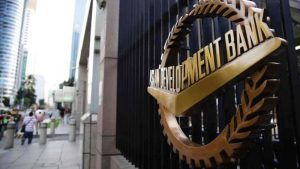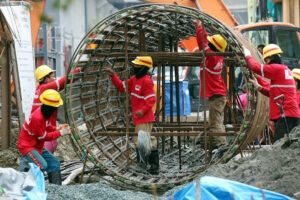ADB commits to supporting PHL climate, infra efforts

THE Asian Development Bank (ADB) has expressed its support for the Philippines’ efforts on climate mitigation, expanding employment, and developing infrastructure, the Department of Finance (DoF) said.
“I am very pleased to hear that the Bank is fully committed to helping us fulfill our goal of inclusive and sustainable long-term growth by aligning the ADB-Philippines Country Partnership Strategy with this administration’s socioeconomic priorities,” Finance Secretary Benjamin E. Diokno said in a tweet after meeting with ADB Country Director Kelly Bird.
At the end of 2021, the ADB was the Philippines’ second-largest source of official development assistance (ODA), with financing of nearly $9 billion, representing 28% of all ODA.
The bank said its lending program to the Philippines averages $3 billion a year until 2024.
In a statement on Wednesday, the ADB said it intends to focus on three key priorities for the Philippines in 2024-2029 — climate action, transport and communication, and investing in welfare projects.
Mr. Diokno said the ADB’s priorities do not conflict with the administration’s eight-point socioeconomic agenda, which include addressing inflation and creating “more jobs, quality jobs, and green jobs” via investment in infrastructure, human capital, and digitalization.
The administration has signaled its intent to focus on railways, expressways, disaster-mitigating infrastructure and irrigation. It has also identified agriculture, tourism, financial inclusion, healthcare, and social assistance as priority areas.
The ADB has 28 active loan programs worth $8.33 billion in the Philippines, in areas like infrastructure, local economic development, and human capital.
“Among ongoing projects are the Malolos-Clark Railway Project, EDSA Greenways Project, projects on local governance and senior high school support, and programs for COVID-19 (coronavirus disease 2019) recovery,” the DoF said.
The ADB is also supporting Philippine efforts to transition to clean energy.
“We will deal with the impact of climate change while bringing down energy costs through developing clean and renewable energy sources, such as hydro, geothermal, wind, and solar power. We will work together with the international community, such as our ongoing partnership with the ADB, to accelerate our transition from coal to clean energy,” Mr. Diokno told the G20 last month.
Consultations to refine the ADB’s framework will commence in October this year, the DoF said.
In July, the government outlined its plan to set aside 5-6% of gross domestic product (GDP) for infrastructure spending.
The government’s debt-to-GDP ratio eased to 62.1% at the end of June from 63.5% the previous quarter, still above the 60% threshold considered manageable for developing economies.
The national debt was a record P12.79 trillion at the end of June. — Diego Gabriel C. Robles




